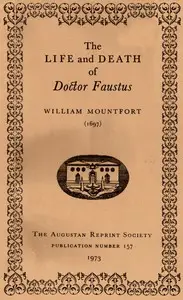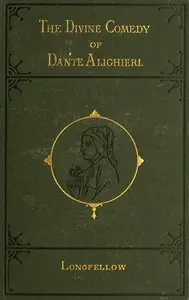"The Tragical History of Doctor Faustus" by Christopher Marlowe is a play about a brilliant but restless scholar who makes a terrible deal. Tired of regular knowledge, Dr. Faustus wants unlimited power and makes the fateful decision to turn to dark magic and summon a demon. He's torn between right and wrong, as good and evil angels try to influence him. Driven by huge ambition, Faustus calls up Mephistophilis, a demon ready to grant his wishes, but this choice sets him on a course for certain disaster.

The Tragical History of Doctor Faustus From the Quarto of 1604
By Christopher Marlowe
A scholar trades his soul for ultimate power, embarking on a journey filled with temptation and shadowed by impending doom.
Summary
About the AuthorChristopher Marlowe, also known as Kit Marlowe, was an English playwright, poet, and translator of the Elizabethan era. Marlowe is among the most famous of the Elizabethan playwrights. Based upon the "many imitations" of his play Tamburlaine, modern scholars consider him to have been the foremost dramatist in London in the years just before his mysterious early death. Some scholars also believe that he greatly influenced William Shakespeare, who was baptised in the same year as Marlowe and later succeeded him as the preeminent Elizabethan playwright. Marlowe was the first to achieve critical reputation for his use of blank verse, which became the standard for the era. His plays are distinguished by their overreaching protagonists. Themes found within Marlowe's literary works have been noted as humanistic with realistic emotions, which some scholars find difficult to reconcile with Marlowe's "anti-intellectualism" and his catering to the prurient tastes of his Elizabethan audiences for generous displays of extreme physical violence, cruelty, and bloodshed.
Christopher Marlowe, also known as Kit Marlowe, was an English playwright, poet, and translator of the Elizabethan era. Marlowe is among the most famous of the Elizabethan playwrights. Based upon the "many imitations" of his play Tamburlaine, modern scholars consider him to have been the foremost dramatist in London in the years just before his mysterious early death. Some scholars also believe that he greatly influenced William Shakespeare, who was baptised in the same year as Marlowe and later succeeded him as the preeminent Elizabethan playwright. Marlowe was the first to achieve critical reputation for his use of blank verse, which became the standard for the era. His plays are distinguished by their overreaching protagonists. Themes found within Marlowe's literary works have been noted as humanistic with realistic emotions, which some scholars find difficult to reconcile with Marlowe's "anti-intellectualism" and his catering to the prurient tastes of his Elizabethan audiences for generous displays of extreme physical violence, cruelty, and bloodshed.

![Faust [part 1]. Translated Into English in the Original Metres by Johann Wolfgang von Goethe](https://cdn.a2-host.cloud/y-MkV3aFt2tKEbdp7VCDtzUhX9qKc82D4dZAE78xr7U/rs:fill:215:325:0/g:ce/aHR0cHM6Ly9zcC1hc3NldHMuczMudXMtd2VzdC0wMDQuYmFja2JsYXplYjIuY29tL2Jvb2svMTQ1OTEvRmF1c3RfcGFydF8xX1RyYW5zbGF0ZWRfSW50b19FbmdsaXNoX2luX3RoZV9PcmlnaW5hbF9NZXRyZXNfY292ZXIuanBn.webp)



![Faust: a Tragedy [part 1], Translated from the German of Goethe by Johann Wolfgang von Goethe](https://cdn.a2-host.cloud/aVXahljiexfZhC4Ds0TB_hpZCZ5J2CMZmS_FgD07FHk/rs:fill:215:325:0/g:ce/aHR0cHM6Ly9zcC1hc3NldHMuczMudXMtd2VzdC0wMDQuYmFja2JsYXplYjIuY29tL2Jvb2svMTQ0NjAvRmF1c3RfYV9UcmFnZWR5X3BhcnRfMV9UcmFuc2xhdGVkX2Zyb21fdGhlX0dlcm1hbl9vZl9Hb2V0aGVfY292ZXIuanBn.webp)













